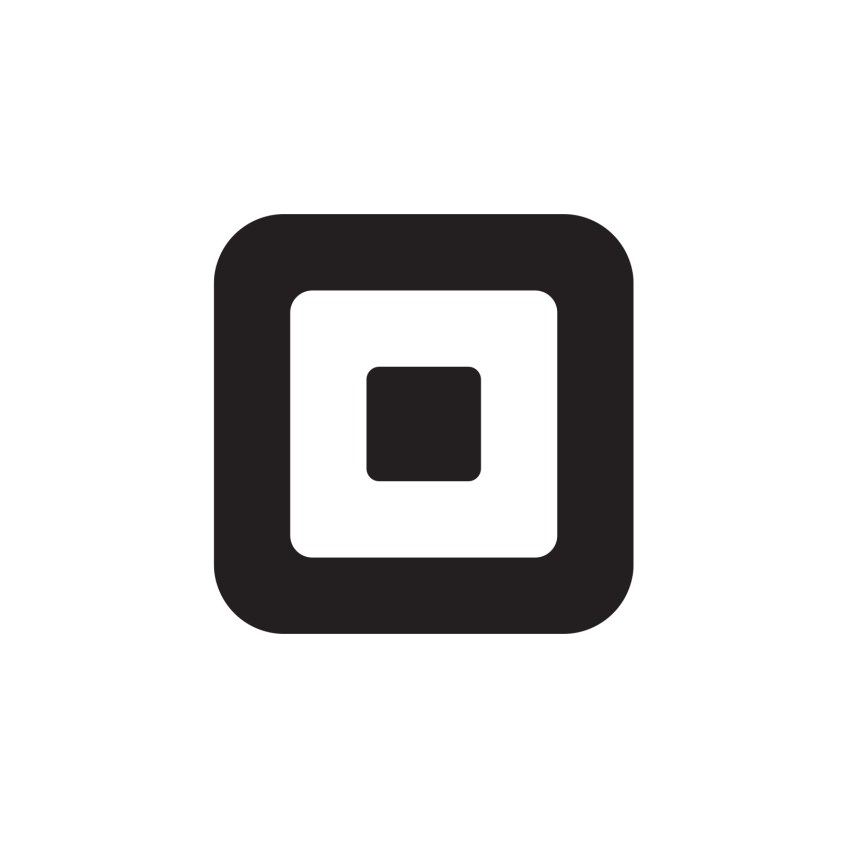
Managing multiple locations without missing a beat is akin to conducting a symphony in the dynamic retail and hospitality world. With the right tools, it’s easy for the entire operation to stay in tune.
Enter the best multi-location ePOS till systems—an extension of your business savvy that harmonises every note from inventory management to sales reporting across numerous outlets.
Grasping this digital conductor’s baton can lead to an impressive 30% reduction in stock discrepancies across all stores—a fact that resonates with retailers looking for tight control and growth.
We unwrap the potential tucked within top-tier multi-location POS solutions, offering invaluable insights you will want to take advantage of. Let’s dive in and uncover how they orchestrate business efficiency like never before.
Key Takeaways
- Multi-location POS systems help businesses manage sales and stock easily across different places. They come with features like watching inventory, sharing info quickly, and keeping track of what sells best.
- Several multi-location POS systems exist, including traditional, cloud-based, tablet-focused, mobile options, self-service kiosks, and integrated systems. Each kind offers unique benefits that fit different business needs.
- When picking a multi-location POS system for your business, think about important stuff such as tools for marketing, managing your items from one place, connecting all your selling spots in one system and how you will send goods to customers.
- The future of POS systems is changing with new things like AI (artificial intelligence), which helps understand customer preferences and improves how we sell things.
- Lightspeed Retail, TouchBistro, NCR Aloha, Toast and Square for Restaurants are good choices for businesses with multiple locations because they offer many helpful features to make running a business easier.
Top 5 Multi-Location POS Systems
We will review the 5 best multi-location POS systems: Lightspeed Retail, TouchBistro, NCR Aloha, Toast, and Square for Restaurants. These systems are known for their features and functionalities that cater to the specific needs of businesses with multiple locations.
Lightspeed Retail

Lightspeed Retail stands out for shops that have more than one place. It lets staff members sell things and track them all easily. The system is in the cloud, meaning you can access your store’s data anywhere.
It works well with iPads, giving you an intelligent way to help customers on the shop floor. Lightspeed Retail costs £79 per month.
This POS software also has tools for keeping an eye on what you’ve got in stock across different sites. You can move items from one place to another without hassle. Lightspeed Retail connects with many payment methods and accounting software like QuickBooks Online, making money tasks simple.
With this ePOS till system, everything about your sales talks together smoothly – online orders, inventory control, customer info and more are all in sync.
TouchBistro

TouchBistro is an ePOS till system designed just for restaurants. An iPad helps you easily handle orders, bills, and tables. The software also offers tools to manage your menu and track what food is popular.
You can take payments at the table and split bills without making mistakes. It’s great because it works offline, too, so there’s no need to worry if the internet goes down. TouchBistro costs £69 per terminal per month.
With TouchBistro, staff management becomes more straightforward as well. You can monitor your team’s work hours and sort out their pay. This POS system gives you a clear look at customer data, which helps with your restaurant’s loyalty programs or marketing plans.
Plus, setting up TouchBistro takes little time, so you can quickly improve your service!
NCR Aloha

Aloha POS system offers a powerful point-of-sale (POS) system that makes running restaurants and bars much smoother. It’s designed to help keep everything from orders to payments flowing quickly, which can be especially useful for businesses with multiple locations.
With the Aloha POS system, staff can take orders fast, chefs get clear instructions, and customers enjoy better service.
This system also includes tableside ordering, mobile payment processing, and real-time sales tracking. Managers love the control it gives them over menus and pricing across different venues.
Plus, the reporting tools make it easy to see how each site is doing. For franchises or multiple restaurant owners looking for tried-and-tested POS software that grows with your business, NCR Aloha might be what you’re searching for. Contact the provider directly to get the actual price in the UK for Aloha POS.
Toast

Moving from the classic NCR Aloha, we explore Toast POS, a robust POS system designed for restaurants. It’s built to meet the needs of eateries big and small, with features that make running a restaurant smoother.
With Toast, places can manage tables, track what food is selling best, and take orders online or in-person all in one place. The pricing starts at £80 per month for Toast POS.
This system stands out because it uses handheld devices so staff can take orders at the table. They also don’t have to worry if the internet goes down since Toast can keep working offline, too.
Payments are also accessible; diners can use cards or mobile payments hassle-free. For those looking to grow their business, Toast offers tools for loyalty programs and gift card management, which helps keep customers coming back for more.
Square for Restaurants

Let’s talk about Square for Restaurants. This point-of-sale software is a hit with eateries, big and small. It offers tools to manage online ordering, staff, and menus from one place.
Its central inventory management system lets you track what you sell in real time across all locations. Plus, it works well on iPads, making it handy for busy places. Square offers a free trial for 30 days, and subsequently, you will pay £69/mo per location.
Square for Restaurants has features that make taking orders fast and easy. Waiters can send orders straight to the kitchen with just a tap. Owners love how they see reports anytime to make smart choices for their business.
This POS system lets customers pay how they want, which could mean more restaurant sales. And if you need help getting started or have questions later on, Square gives good customer support, too.
What are Multi-Location POS Systems?
Multi-location POS Systems are point-of-sale systems that manage multiple business locations, providing central control and real-time data visibility. These systems offer features such as inventory management, sales reporting, and integration with online sales channels for businesses with multiple physical or virtual storefronts.
Types of Multi-Location POS Systems
Point of Sale (POS) systems for multiple locations come in different forms. Each type caters to specific needs and can help you manage your business better.
Traditional POS Systems
These systems use software installed on a computer at each location. They work well with cash drawers and printers. You often need to update them manually, but they are reliable and have been around for a long time.
Cloud-Based POS Systems
This modern option stores data on the internet. You can see information from all the shops in one place. Cloud-based POS allows owners to check on their business from anywhere.
iPad and Tablet POS Systems
These are portable and user-friendly. Staff can carry tablets around to serve customers better. Such systems suit places like restaurants or where staff move around a lot.
Mobile POS Systems
Mobile POS is ideal for businesses on the go, like food trucks or market stalls. It turns phones into payment processors and tracks sales, too.
Self-Service Kiosks
Customers can place orders or check out using these systems. They are often found in fast-food restaurants and cinemas.
Integrated POS Systems
These combine with other tools like online stores or accounting software. It helps keep track of everything from sales to stock levels across all business areas.
Related: Types of POS Systems
Benefits of Using a Multi-Location POS System
A multi-location POS system helps businesses run smoother by keeping track of sales and stock across all stores from one place. A shop owner can see what’s selling well or which items need to be ordered without visiting each location.
It saves time and makes it easy to share information quickly between stores.
Using this system, restaurants and retail management systems also improve at making customers happy. They can offer loyalty programs that work anywhere the business has a store, giving shoppers points or rewards no matter where they buy.
Plus, staff can look up prices, stock levels, or order history for customers on the spot, which speeds up service and keeps things running smoothly.
Factors to Consider When Choosing a Multi-Location POS System
Consider important factors such as marketing management tools, centralised inventory management, integrated sales channels, and shipping & delivery options when selecting a multi-location POS system for your business.
These elements will streamline operations and improve overall efficiency in managing multiple locations.
Marketing Management Tools
Marketing management tools are crucial for multi-location businesses. These tools help create and execute marketing campaigns across different locations, manage customer data for targeted promotions, and track the performance of various marketing activities.
With these tools, businesses can streamline their marketing efforts, ensure consistent branding across all locations, and gain insights into customer behaviour to tailor their strategies effectively.
Additionally, these tools enable businesses to run loyalty programmes, manage customer reviews on social media platforms, and analyse the effectiveness of different promotional offers.
Centralised Inventory Management
A centralised inventory management system is crucial for seamless operations when managing multiple locations. With barcode scanning, real-time tracking, and automatic stock updates, businesses can maintain accurate inventory levels across all outlets.
This helps prevent overstocking or stockouts, enabling efficient fulfilment of customer orders and reducing carrying costs.
Integrated with a multi-location POS system, centralised inventory management provides real-time visibility into stock levels at different stores, streamlining restocking processes and ensuring that popular items are always available where needed.
Integrated Sales Channels
Integrated sales channels allow you to centralise and manage all your sales activities across different platforms. Integrating your sales channels will enable you to streamline processes like inventory management, order fulfilment, and customer data.
This means that when a sale is made in one channel, it automatically updates inventory levels across all other channels, ensuring accurate stock information and preventing overselling.
With integrated sales channels, you can offer a consistent experience to your customers regardless of where they choose to purchase, improving customer satisfaction and loyalty.
Moreover, marketing efforts can be synchronised across various platforms for a cohesive brand image and targeted promotions.
Shipping & Delivery
When selecting a multi-location POS system, it’s crucial to consider its shipping and delivery capabilities. An adequate system should enable streamlined management of orders and efficient processing of deliveries across multiple locations.
To ensure smooth operations, look for features like integrated shipping tools, real-time tracking, and automated delivery notifications.
The right POS system will simplify the shipping process, optimise delivery routes, and provide accurate insights into inventory levels for each location.
Consider choosing a multi-location POS system that seamlessly integrates with popular shipping carriers like UPS, FedEx, or Royal Mail. This integration can generate shipping labels directly from the POS platform while ensuring easy access to customer addresses and preferences for hassle-free deliveries.
The Future of POS Systems in Multi-location Businesses
The future of POS systems in multi-location businesses is evolving with emerging trends and technologies, such as integrating AI and machine learning. As the industry advances, businesses must stay informed about the latest developments to optimise their operations and stay ahead of the competition.
Emerging Trends and Technologies
The future of point-of-sale (POS) systems looks towards more advanced integrations with e-commerce platforms, improved contactless payment options, and enhanced customer management tools.
Retailers increasingly embrace mobile POS solutions for better flexibility in serving customers and managing transactions.
AI and machine learning advancements are expected to revolutionise POS systems, offering retailers valuable insights into customer behaviour and preferences. As technology evolves, POS systems will likely become more intuitive and efficient at streamlining operations across multi-location businesses.
The Role of AI and Machine Learning
AI and machine learning play a crucial role in enhancing multi-location POS systems. These advanced technologies can quickly analyse large volumes of data, providing valuable insights into customer behaviour, inventory management, and sales patterns.
By leveraging AI and machine learning, businesses can make more informed decisions, automate repetitive tasks, and personalise the customer experience for improved efficiency and profitability.
Furthermore, AI-powered algorithms can detect fraudulent activities and identify potential security threats within the POS system, offering enhanced protection for sensitive payment information.
Predictions for the POS Industry in the UK
As the role of AI and machine learning continues to evolve in the POS industry, several trends are anticipated to shape the future landscape of multi-location businesses in the UK.
Integration with e-commerce platforms is expected to become more seamless, enhancing online and offline customer experiences. Moreover, advancements in contactless dining technology are predicted to streamline operations further and cater to changing consumer preferences for convenience and safety.
The demand for subscription models within POS systems is also projected to rise as businesses seek recurring revenue streams while providing flexibility to their customers.
In addition, there is a growing emphasis on performance metrics and data analytics within POS systems, allowing businesses to make informed decisions based on real-time insights. Furthermore, loyalty programmes integrated into POS systems will likely become more sophisticated, leveraging customer data for personalised promotions and tailored experiences.
Conclusion
In conclusion, selecting the right multi-location POS system can significantly streamline operations and enhance efficiency for businesses with multiple locations. With the right features and integrations, a POS system can help manage inventory, sales channels, marketing initiatives, and more.
Consider all factors carefully to make an informed decision that best suits your business needs.
Best POS software











